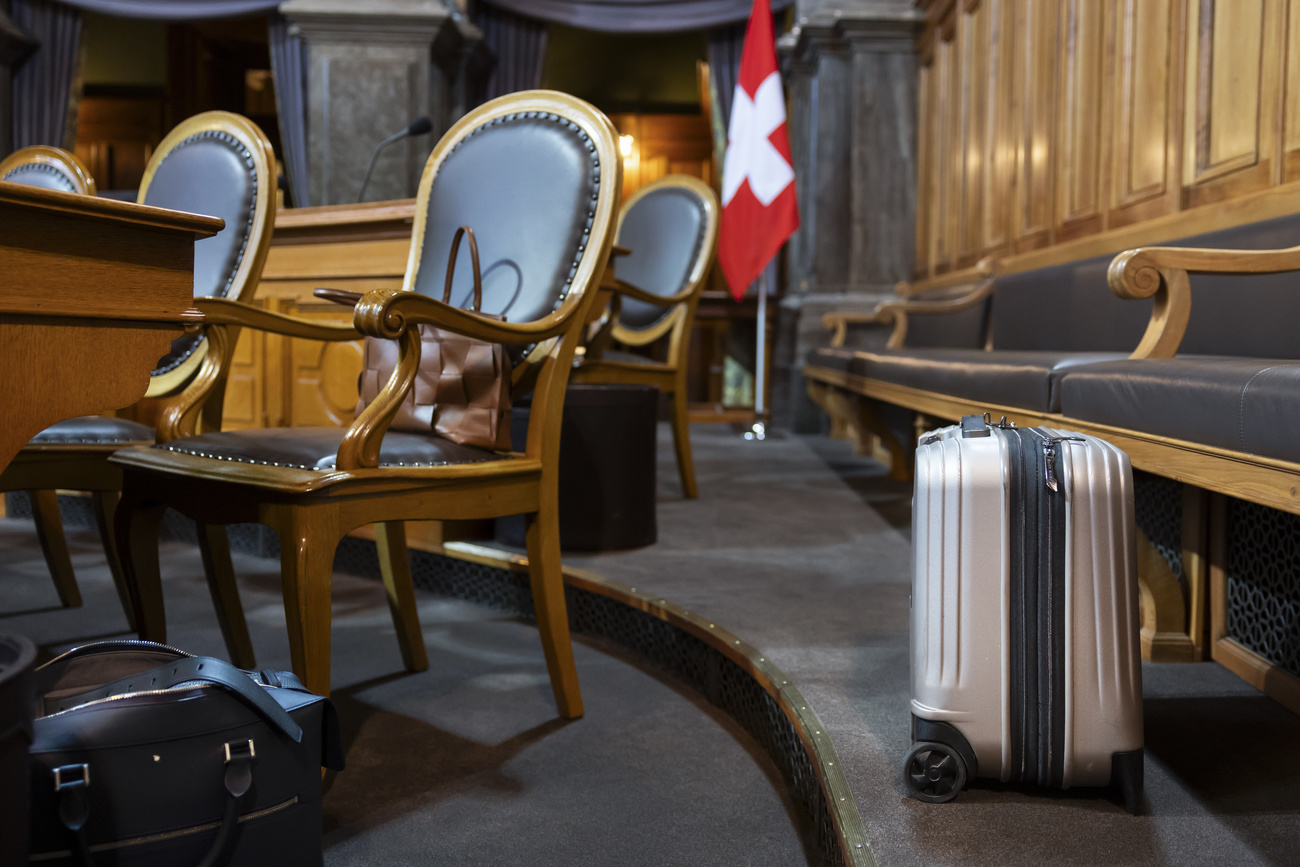
Switzerland Today
Dear Swiss Abroad,
The economy, the intelligence services, and a dramatic legal ruling all feature in today’s newsletter. Most notably, the Federal Supreme Court has revoked the Senate seat of Schaffhausen Social Democrat Simon Stocker over residency issues—a decision raising wider questions about family models and political representation.
We also look at the growing interest of wealthy Americans in Swiss banks, undercover virtual agents, and how business organisations are struggling to maintain their political influence.
Enjoy your read

It was a legal bombshell: the Federal Supreme Court has revoked the Senate seat of Schaffhausen Social Democrat Simon Stocker.
The reason? At the time of the election, Stocker was living in the city of Zurich with his wife and son, despite also maintaining a flat and residency in Schaffhausen. The court ruled that his primary place of residence was Zurich, thereby breaching the legal residency requirement.
Stocker has accepted the ruling but called it a “rejection of an equal family model”, having organised his life to allow both parents to work. Lisa Mazzone, a former senator from Geneva and president of the Green Party, agreed: “With decisions like this, it’s no wonder if soon only older men are left in the senate,” she told CH Media.
This is the first time in modern parliamentary history that a sitting senator’s election has been overturned. Parliamentary services say no such case has occurred since at least 1979 – and possibly not since the founding of the confederation in 1848.
A new election in Schaffhausen is scheduled for June 29. Stocker has already announced his candidacy. It remains to be seen whether former rival Thomas Minder or a new centre-right challenger will enter the race.

The Federal Intelligence Service (FIS) is now authorised to deploy covert virtual agents online – an approach the independent supervisory authority has deemed lawful.
As suspects increasingly communicate in closed online groups or via encrypted messaging apps, authorities fear that early warning signs of terrorist threats may otherwise go undetected.
Virtual agents follow the same legal requirements as real-world covert operatives, including using false identities and backstories.
But not everyone is convinced. Lawyer Viktor Györffy, of the Digital Society association, says the legal foundation is too vague and calls for explicit regulation. While the supervisory authority considers the legal framework adequate, it notes that clear operational guidelines are still lacking. “It has not been conclusively clarified what is and is not permitted,” it concludes.

Once united and effective, Switzerland’s major business organisations are finding it harder to speak with one voice – and voters are listening less.
Economiesuisse, the Swiss Employers’ Association and the Trade Association are no longer aligning effectively on political campaigns, writes the Neue Zürcher Zeitung (NZZ). Fabio Regazzi, President of the Trade Association, said the groups are being forced to rethink how they communicate and campaign.
Political scientist Michael Herrmann explains the decline in influence by pointing to internal divisions: while some businesses move towards sustainability, diversity and EU cooperation, others prefer isolation and deregulation. “It’s almost impossible now to position yourself as the unified voice of business,” he says.
Meanwhile, trade unionists on the opposite side have united and there is more mistrust of the business elite. Business organisations are currently struggling to implement reforms. However, according to the NZZ, there is no consensus on what these reforms should look like.

This time, it’s not about tariffs – wealthy Americans are eyeing Switzerland as a place to park their assets.
“Unlike in previous elections, this time they’re really doing it,” says Yann Rousset of investment consultancy Pilotage Private Wealth.
According to Bank Vontobel, factors such as geopolitical uncertainty, customs risks and the appeal of Swiss franc diversification are all contributing to the trend. Interest is coming from both sides of the US political spectrum.
Rousset told Le Temps: “The emerging multipolar world encourages people to hold assets in different places. It also creates new investment opportunities outside the US, as we’ve seen in recent European and emerging markets performance.”
Translated from German using DeepL/amva

In compliance with the JTI standards
More: SWI swissinfo.ch certified by the Journalism Trust Initiative








